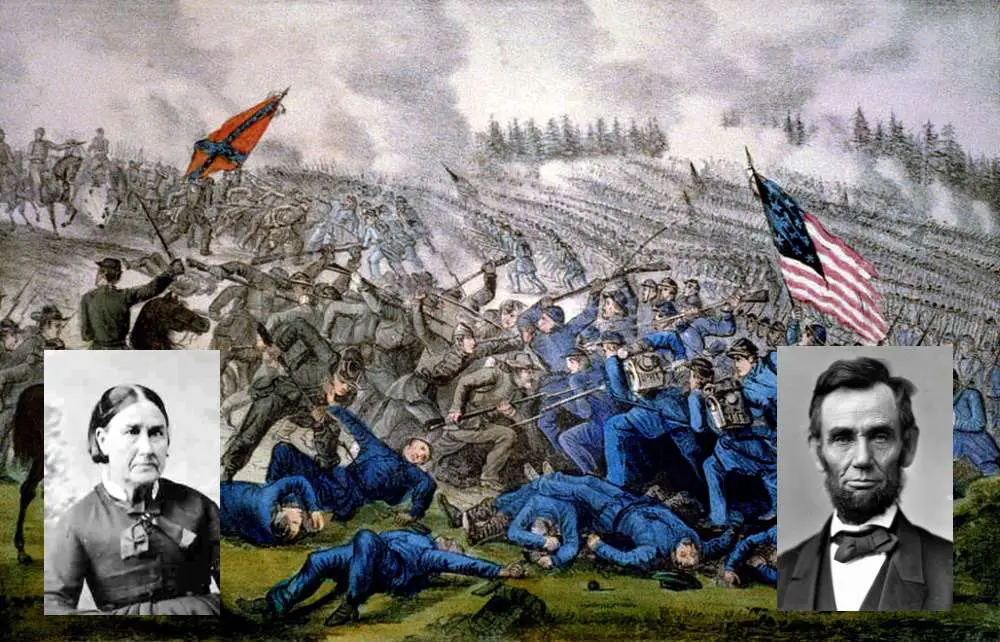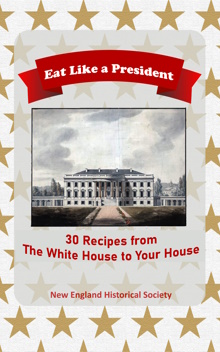In the 1998 film Saving Private Ryan, Gen. George Marshall reads a letter written by Abraham Lincoln to a Boston widow who lost five sons fighting the Civil War. Known as the Bixby Letter, scholars consider it one of Lincoln’s finest literary efforts.
The missive has won praise as a masterpiece of the English language and comparable with – even better than – the Gettysburg Address. It’s been called the “finest condolence letter in the English language.”
Delivered to Lydia Bixby around Thanksgiving in 1864, the Boston newspapers published copies of it. The original has never been found.
It may well be the most controversial condolence letter in the English language. Some say Lincoln never wrote it. Historians argue over exactly how many sons Mrs. Bixby lost fighting for their country. It certainly wasn’t five. And Mrs. Bixby herself has been reviled as a whorehouse madam who sympathized with the South.
We’ll probably never know the truth, but the letter speaks for itself.
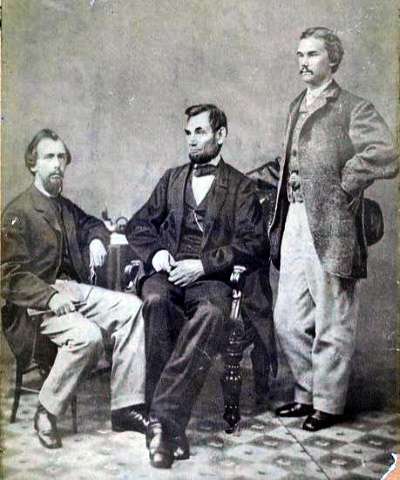
Abraham Lincoln and his two secretaries, John Nicolay and John Hay
The Bixby Letter
Executive Mansion,
Washington, Nov. 21, 1864.Dear Madam,
I have been shown in the files of the War Department a statement of the Adjutant General of Massachusetts that you are the mother of five sons who have died gloriously on the field of battle.
I feel how weak and fruitless must be any words of mine which should attempt to beguile you from the grief of a loss so overwhelming. But I cannot refrain from tendering to you the consolation that may be found in the thanks of the Republic they died to save.
I pray that our Heavenly Father may assuage the anguish of your bereavement, and leave you only the cherished memory of the loved and lost, and the solemn pride that must be yours to have laid so costly a sacrifice upon the altar of Freedom.
Yours, very sincerely and respectfully,
A. Lincoln.
Lydia Parker Bixby
In September of 1864, Lydia Bixby climbed the steps of the Massachusetts Statehouse to visit William Schouler in his office. She was just one of many anxious mothers and wives who thronged Schouler’s anteroom seeking help. She came to apply for a widow’s pension.
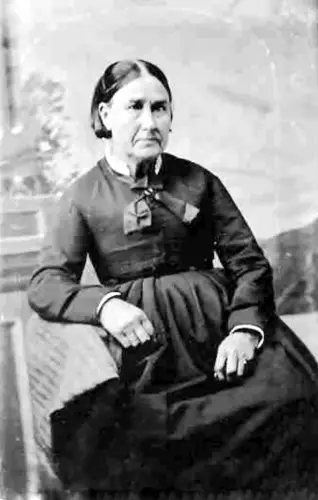
Lydia Bixby
Schouler, as adjutant general of Massachusetts, had already received several visits from Mrs. Bixby. She was around 60 or older, poor, lightly educated and careworn. She had married Cromwell Bixby, a shoemaker, in Hopkinton, Mass., on Sept. 26, 1826. They had at least six sons and three daughters before Cromwell died in 1854. Sometime before the Civil War, the family moved to the Dorchester section of Boston. After the war broke out, five of her sons enlisted in Massachusetts regiments.
She made her first known visit to Schouler In October 1862.
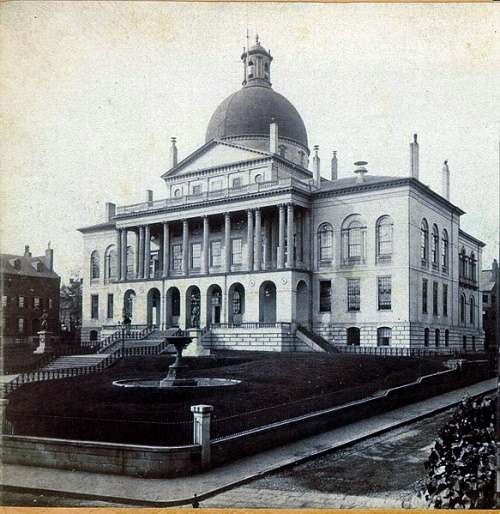
The Massachusetts Statehouse in 1860
She asked him to discharge her young son Edward. He was only 16 when he enlisted, she said, and given to “bouts of insanity” from time to time. Mrs. Bixby may not have revealed — or even known — that Edward had deserted from the Army five months earlier. If she did know, perhaps she thought she could spare him a likely death sentence if caught.
In 1862 she also asked him for help to visit another son in Maryland, wounded at the Battle of Antietam. Schouler helped her get $40 from Gov. John Andrew so she could nurse him in a Maryland hospital.
However, war records show none of her sons wounded at Antietam.
Two years later, she went to see Schouler again. She told him five of her sons had died fighting for their county. Could he help her?
Schouler then told Andrew, who asked the War Department if Lincoln could write a letter of condolence to the grieving widow.
The Bixby Boys
Sloppy staff work or perhaps the fog of war explain why Lincoln thought five Bixby boys died fighting for the Union cause. The War Department sent Schouler information that all five had been killed in the war. Lincoln – or Hay – wrote the letter to Mrs. Bixby based on that information.
But only two died for sure in battle, maybe three. Another son may have deserted as well.

The penalty for desertion
One reason for the mix-up: Bixby’s five sons had four cousins who came from the same towns and served in the same Massachusetts regiments, according to Kendall Banning, writing in The Bookman in 1922. ”In the confusion that attended the large engagements of the war, it is possible that the records of these nine Bixby boys became mixed,” he wrote.
Perhaps Mrs. Bixby herself thought all five had been killed, given the confusion of war. “Even if only two of Mrs. Bixby’s sons were killed, that was not a light sorrow,” Lincoln scholar Rev. William Barton observed in the New York Times on Aug. 6, 1925.
Gossip Rears Its Ugly Head
In addition to losing her sons, Mrs. Bixby suffered the contempt of her betters, both during her lifetime and afterward.
Sarah Cabot Wheelwright, a Brahmin philanthropist, brought charitable aid to Mrs. Bixby during the war. In a letter to her daughter in 1904, she wrote she had heard gossip that Mrs. Bixby “kept a house of ill-fame, was perfectly untrustworthy and as bad as she could be.” Wheelwright wrote the letter in 1904, 26 years after Mrs. Bixby died a patient at Massachusetts General Hospital.
Even later than that, the Rev. William Barton visited Mrs. Bixby’s neighbors still living in Hopkinton He reported they remembered her sons as tough. Some of them liked drink too much, and one may have served time in jail.
True or false, the dimly remembered hearsay of Mrs. Bixby’s acquaintances lived on as hard fact in the historical record.
“The Mrs. Bixby to whom it was addressed was in fact a Confederate sympathizer who ran a whorehouse.,” Michael Burlingame wrote in American Heritage in 1999. Many others repeated the characterization.
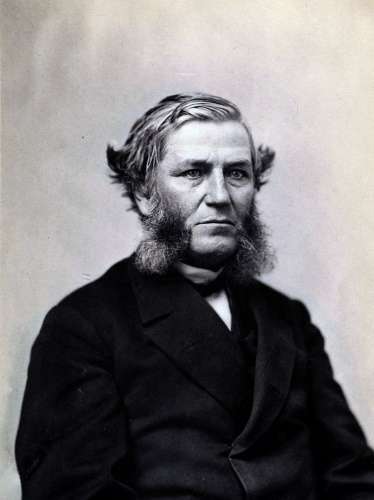
William Schouler
William Schouler, who had met Mrs. Bixby several times and visited her at home, had a different opinion. “Mrs Bixby is the best specimen of a true-hearted Union woman I have yet seen,” he wrote on Sept. 24, 1864.
We’ll never know.
What did happen to the Bixby boys?
Historians have pieced together the records of the Bixby boys, though some are inconclusive.
The youngest, Pvt. Arthur Edward Bixby (“Edward”), enlisted at 16 and then deserted from the 1st Massachusetts Heavy Artillery at Fort Richardson, Va., on May 28, 1862. He returned to Boston after the war.
Sgt. Charles Bixby, 20th Massachusetts Infantry, killed in action on May 3, 1863 near Fredericksburg.
Cpl. Henry Cromwell Bixby, 32nd massachusetts infanty, captured at Gettysburg, sent to Richmond, Va., and paroled on March 7, 1864. Died seven years later of tuberculosis contracted as a soldier.
Pvt. Oliver Cromwell Bixby, Jr., 58th Massachusetts Infantry, wounded at Spotsylvania, killed at Petersburg.
Conflicting military reports make the fate of Pvt. George Way Bixby unclear. Captured at Petersburg, he either died in Salisbury Prison as a POW or deserted to the Confederate Army.
The Original Bixby Letter
The original letter to Mrs. Bixby doesn’t seem to exist any more. Forgeries, however, have floated around since 1891. Christie’s auction house apparently gets about six every year.
Some of her descendants have said she sympathized with the South, hated Lincoln and tore up the letter.
Mrs. Bixby’s great-grandson recalled, “I was advised by my Father that my Great-Grandmother was an ardent Southern Sympathizer, and when she received the letter, she destroyed it in anger … shortly after receipt without realizing its value.” Other grandchildren and great-grandchildren heard the same stories.
But again, it’s all hearsay.
Questions of Authorship
Some scholars say it’s likely his secretary, John Hay, wrote the Bixby letter. Hay, a talented mimic, penned many letters for the overburdened president, And according to scuttlebutt that filtered down over the years, he told friends he had written it.
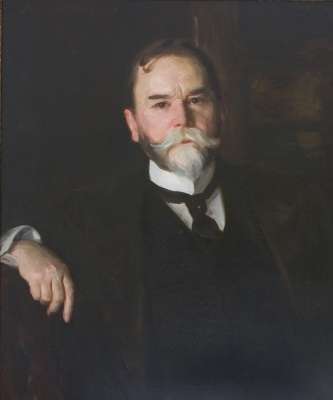
John Hay, by John Singer
In 2017, a team of linguistic researchers concluded Hay almost certainly wrote the letter. They based their conclusion on a computer analysis of word sequences in the letter to Mrs. Bixby and comparing it to other writings by Hay and Lincoln.
Others say the letter is pure Lincoln. Further, Hay’s own children said he never claimed the famous letter as his. The president’s son, Robert Todd Lincoln, wrote in 1917 letter that Hay told him he had no knowledge of the letter at the time.
The Bixby Letter
A passage from the letter appears chiseled in stone at the base of the National Memorial Cemetery of the Pacific in Hawaii. It reads, “”the solemn pride that must be yours to have laid so costly a sacrifice upon the altar of freedom.”
Then in 1998, Harve Presnell as Marshall reads the letter in Saving Private Ryan. Tom Hanks stars in the film about saving the fourth b rother after three died in battle.
Ten years after the September 11 attacks, former president George W. Bush read the letter to Mrs. Bixby during a memorial service.
* * *
Eat Like a President is now available in paperback. Order your copy from Amazon by clicking here.
Execution of a deserter, By https://wellcomeimages.org/indexplus/obf_images/3c/36/30789bfbc464742dc7c3ef6baa7d.jpgGallery: https://wellcomeimages.org/indexplus/image/V0041826.htmlWellcome Collection gallery (2018-04-03): https://wellcomecollection.org/works/zev3bpgb CC-BY-4.0, CC BY 4.0, https://commons.wikimedia.org/w/index.php?curid=36647109. This story last updated in 2024.
